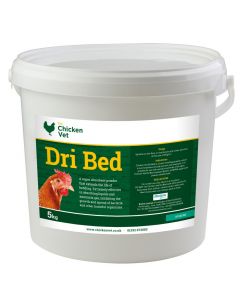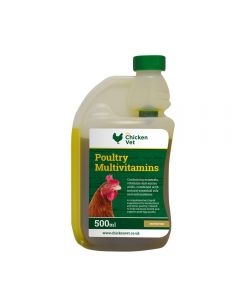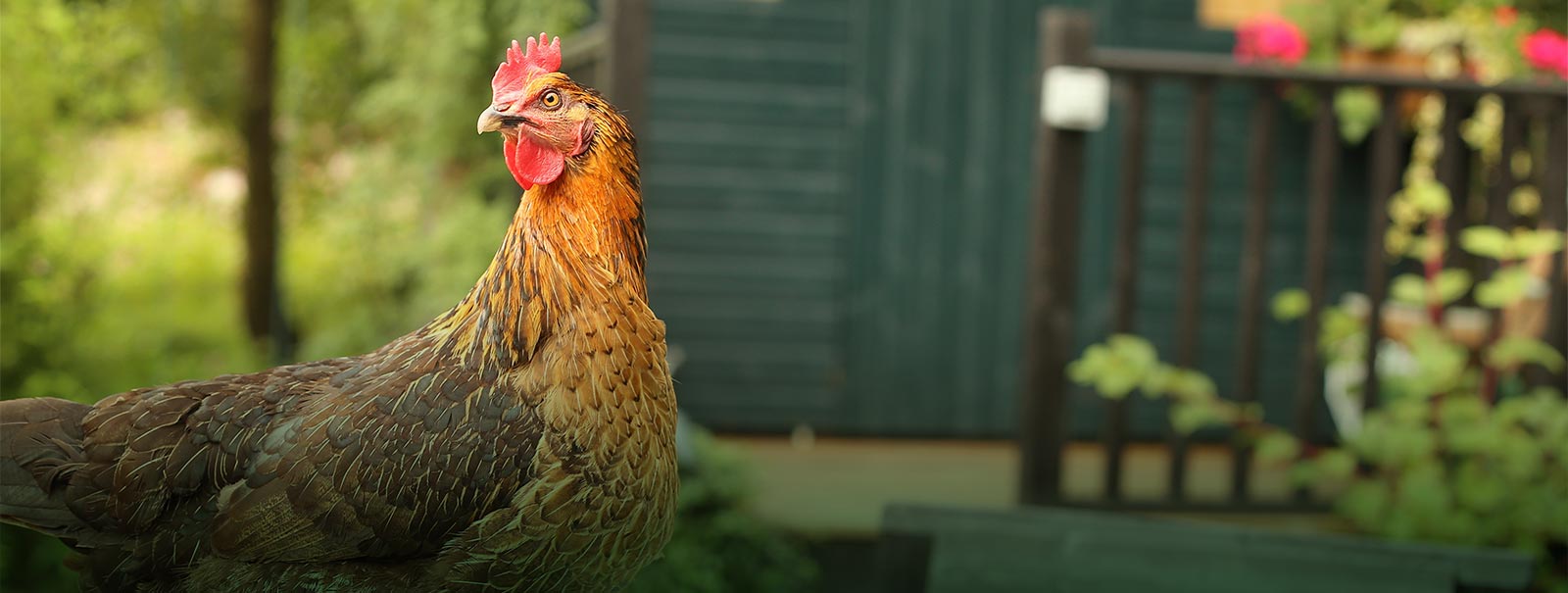
The advice hub Showing guide
Many show bird owners keep their birds indoors for a few weeks or even months before showing, either to stop colour fading or to keep leg feathers in prime condition. Keeping birds indoors is certainly one way of maintaining feather colour and quality. We would also remind you not to forget to worm them with Flubendazole, even if they are kept indoors, as most worm species can complete their lifecycles indoors without the need for pasture.
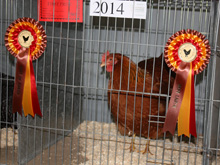
For yellow legged breeds such as Wyandottes and Leghorns, there is a school of thought that giving extra maize in their diet will improve the yellow colour of their legs. Maize contains carotenoids which are responsible for the yellow pigment in the legs. If you give more carotenoids then the legs should be more yellow. However, we would caution on the overuse of maize in a bird's diet as it is high in energy, but low in protein. Never give more than 30% of maize in a chicken's diet (this figure should include the maize content in the chicken's mash/pellet). If you really overdo it on the maize front you can cause the white earlobes of leghorns to take on a yellow tinge.
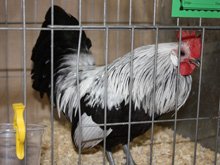
One of the most important issues for owners of showbirds is the feather quality. Remember that feathers are formed during the bird’s last moult and adding protein or other supplements to its diet will not alter the feathers on the bird. This means that when thinking about showing a bird next year, then it is best to administer a supplement now to ensure that good quality feathers are formed during the regrowth period.
Feathers are over 80% protein and as such the bird will have a huge demand for protein from its diet. During the moult, giving a product such as Chicken Vet Multivitamins which contain amino acids will help to supply the protein required to help produce new, good quality feathers. Prevent feather pecking by keeping the flock stress free. The feeding of a balanced diet is important at this time.
For hens it is probably best to limit their sexual activity as cockerels can damage feathers on their backs and on the back of their head. Controlling parasites such as scaly leg mite, red mite, depluming mite and other lice is important as mites and lice cause irritation to the bird leading to feather damage. Dergall is an excellent product for this. It is important that these parasites are regularly checked for and dealt with as soon as possible.
Putting birds in carriers and taking them to a strange, noisy place can cause stress and this can lead to stress developing or a disease occurring. There are a number of ways to minimise the stress on these birds:
- Place them in your intended box or carrier for about 20 minutes per day for a week before the show to familiarise them with it.
- Put the birds on Chicken Vet Multivitamins for a few days before the show, during the show and after the show so the bird’s water tastes the same and provides some support through the stress.
- Get the bird to the show early so you aren’t rushed and stressed and so the bird has time to settle down before judging commences.
The other big issue with showing is disease spreading between exhibits. Always check your birds for mites and lice before and after showing to ensure you neither take nor leave ectoparasites at the show.
Respiratory disease is a risk in chickens; attending shows are a potential place for disease to be caught as well as spread. The stress of showing can cause some low level underlying diseases such as Mycoplasma to be apparent. Minimising stress will help, but also check with the organisers to ensure that any birds looking slightly unwell are not allowed to be exhibited. The other big responsibility lies on the exhibitors not to bring birds they know to have had respiratory disease in the past. Several top collections have been ruined by people bringing disease home from shows.
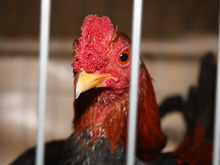
Vaccination is a possibility for show birds but it can end up being rather expensive. However if you have a valuable collection of rare breeds it may be an option to consider. Chicken Vet can provide vaccination advice.

